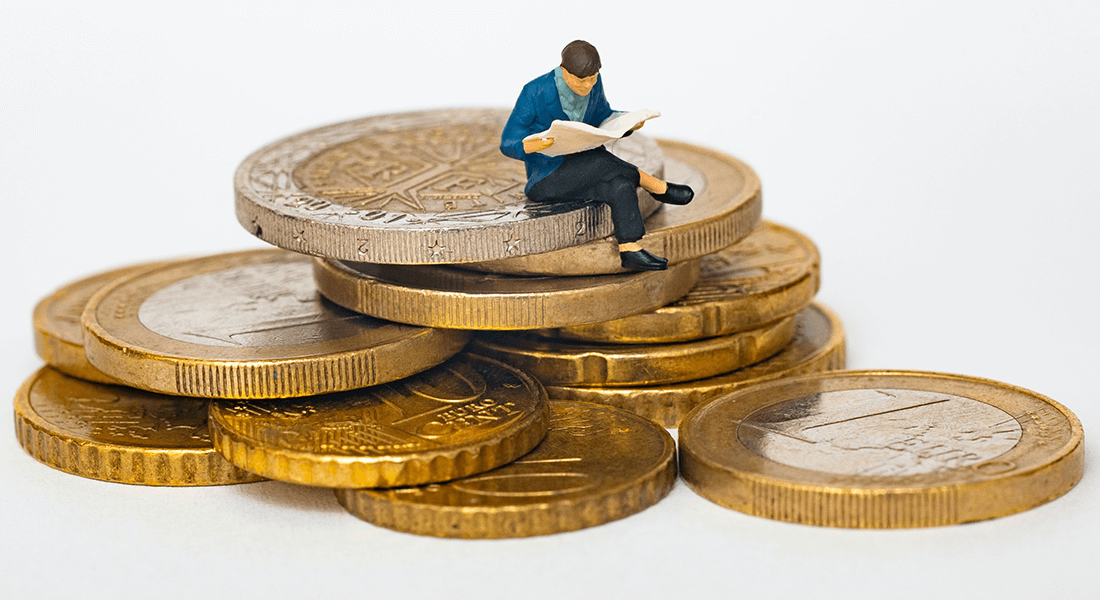Jeppe Druedahl: Economic knowledge is also important for non-economists
Inflation, interest rates and labor supply. Economic terms and statistics fill the media and is used extensively by politicians. Meet economist Jeppe Druedahl in this discussion about the language and importance of the economy – for the society and for its citizens.

Due to the economic turbulence that the Western world is experiencing, the social debate is particularly full of numbers and statistics at the moment. However, it is a trend that has been increasing over the past century, believes Jeppe Druedahl, associate professor at the Department of Economics.
"Policies are increasingly made on the basis of economic analyses, which identify problems or possible solutions. In line with that development, it is becoming more important to understand how economists think and work," he assesses.
A menu of options
If you, as a non-economist, want to understand the basic concepts of economics, you cannot avoid the term 'opportunity costs', mentions Jeppe Druedahl.
"Economists constantly think in terms of opportunity costs. Even though it doesn't initially cost me anything to go to the beach, it still costs me something in the sense that I could have done something else. I could have worked for an hour, made some money and bought something enjoyable,” he says.
The same goes for the expression 'opportunity spaces'. There is very little that is necessary in finance, but some problems cannot be avoided.
"If we were to conclude that public expenditure would continuously be higher than public income, things would go wrong at some point. It is necessary to address this problem, but there is no necessity in terms of how to solve the problem. The economist's most important task is to list the menu of options," points out Jeppe Druedahl.
Models are useful – and fallible
When it comes to the economist's working methods, their models are absolutely essential.
"Our models are mathematical and thus complicated. But even if you don't understand how economic models work, understanding how economists use the models can be of great use, believes Jeppe Druedahl and elaborates:
All models are fallible but can still be used for one thing or another. Therefore, it is crucial to understand what the model is designed to do, emphasizes Jeppe Druedahl.
"A great deal of economics is purely empirical science, which is used to understand what happens in society. We economists are often searching for causations and correlations – and sometimes we find no connection at all," he says and continues:
"It can also be useful for non-economists to have some insight in the modeling work's search for cause and effect. It is knowledge that, for example, can equip you to assess facts mentioned in a TV debate," he says.
Very few laws of nature
Jeppe Druedahl sees a tendency for politicians to use economic conditions to indicate one necessary solution to a problem. Currently, the Danish government argues that it is necessary to abolish the Great Day of Prayer if we are to invest in the Armed Forces.
However, very few things are set in stone when it comes to the economy.
"I think many people actually feel that society is driven by forces that cannot be controlled – or that they cannot control. In reality, there is a very broad framework for which financial decisions you can take to steer development in the direction you want," he points out and elaborates:
"If you want to lower inequality, there are countless ways you can go: You can raise taxes on higher incomes, impose taxes on assets, ease the tax at the bottom or increase a subsidy for the low-income. There are trade-offs, but there are also plenty of opportunities.”
About the researcher

Contact
Jeppe Druedahl
Associate professor
Department of Economics
Mail: jeppe.druedahl@econ.ku.dk
Phone: +45 35 32 44 25
Simon Knokgaard Halskov
Press and communication consultant
Faculty of Social sciences
Mail: sih@samf.ku.dk
Mobile: +45 93 56 53 29
